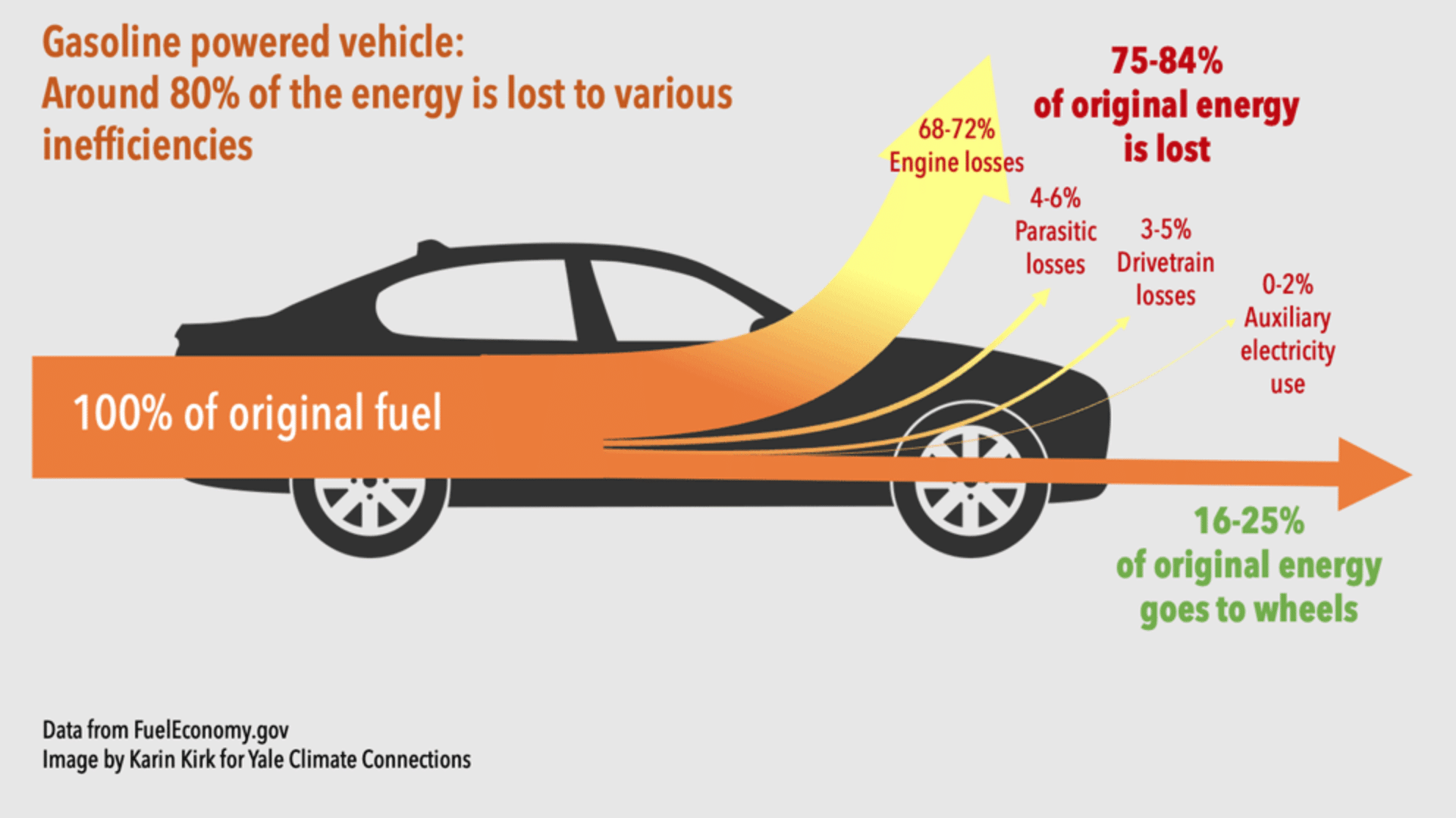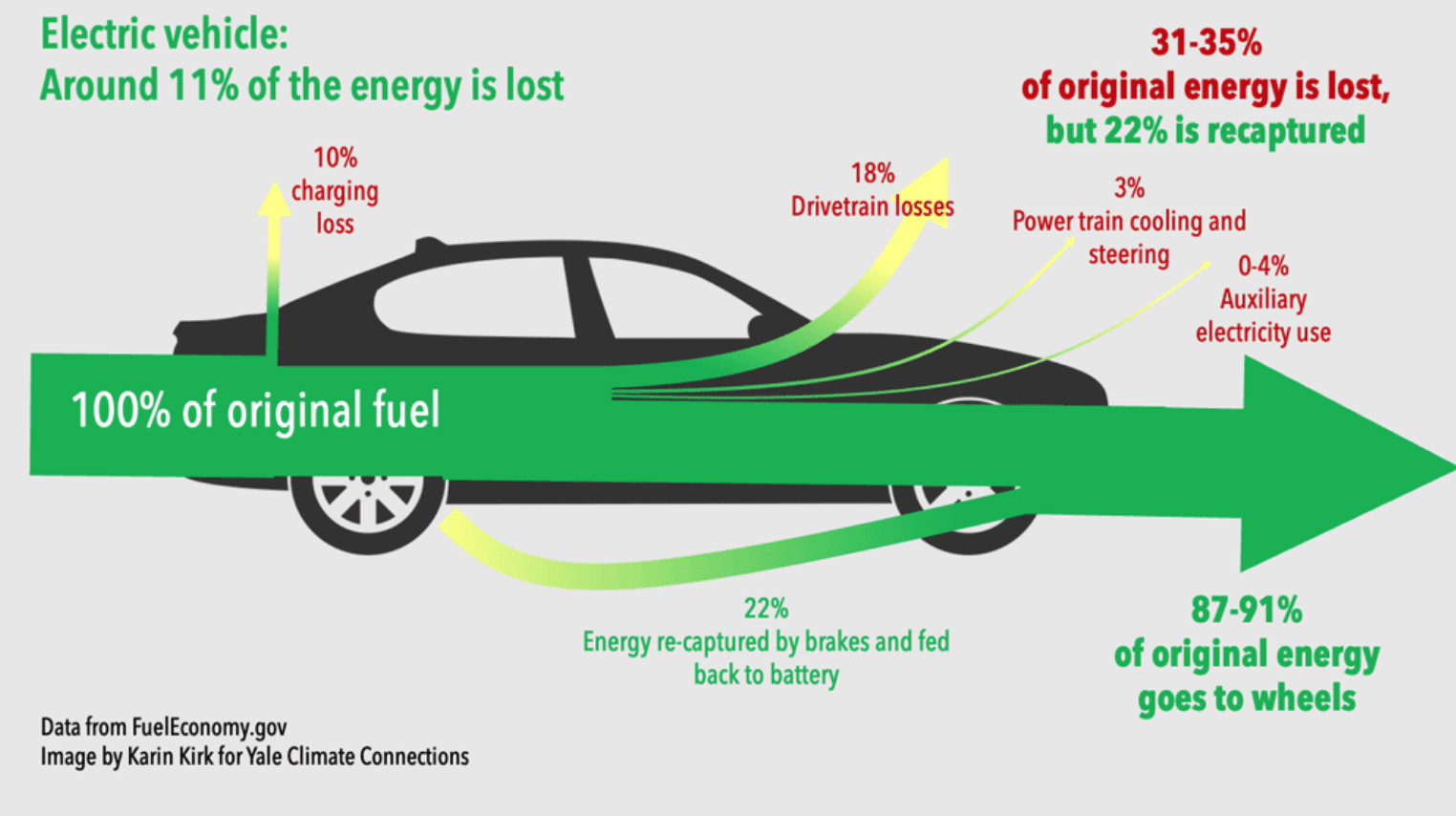Drivers buy electric vehicles for a number of reasons. Some get excited by the novelty and new technology hitting the market. Others want the performance that comes with a Tesla, Audi e-tron, Ford Mustang Mach-E or other high-powered EV. Yet another reason is an attempt to reduce emissions and increase energy efficiency.
On that last point, the question often comes up – how do EVs stack up against gas-powered cars when it comes to energy efficiency? A recent study by Yale Climate Connections addresses this exact topic. We’ve summarized their findings for you below.
Gas-powered cars are extremely inefficient

As shown in the image above, internal combustion engine (ICE) or gas-powered cars have very poor energy efficiency. Of the 100% of fuel you put into the vehicle, roughly 80% of it is lost due to inefficiencies through the engine, drivetrain, and otherwise. Only 16-25% of the original energy actually goes to powering a gas-powered car or truck down the road. Shocking, isn’t it?
EVs are superior at energy efficiency

Electric cars and trucks leverage innovative technology that makes them far more energy-efficient than gas powered vehicles. They’re not perfect, but only 11% of the original fuel is lost (as opposed to 80% for ICE).
A big reason for that energy efficiency difference is that gas-powered cars need to convert gasoline to energy that powers the vehicle. On the other hand, EVs use electricity to directly power the drivetrain, so there is no loss due to energy conversion.
EVs also utilize a concept called regenerative braking. In a nutshell, when you apply the brakes in your electric truck or car, the motor recaptures the kinetic energy lost and uses it to recharge the battery. This process by itself can save greater than 20% of the energy that would otherwise be lost.
Implications of better energy efficiency
It’s quite clear that EVs are far better than gas powered cars at making the best use of energy. This translates to savings for you since driving with electricity has been shown to be cheaper than driving with gasoline.
But the implications are farther reaching than that. As the world continues our transition to electric vehicles, electrification should increase energy efficiency and reduce overall energy demand.
Image Credits: Karin Kirk

